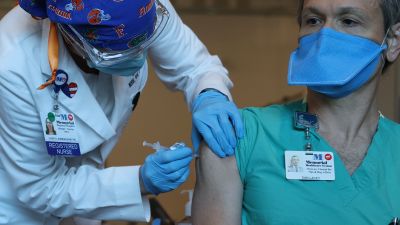
Ladies. (Photo by ohn Twohig/ flickr CC 2.0)
Reproductive rights advocates fully expected a reinstatement of the Mexico City Policy when Donald Trump came into office — after all, it’s been an on-again off-again staple of each contrasting administration’s agenda since it was first instituted by the Reagan administration in 1984. The policy prevents federal aid money from going overseas to nongovernmental organizations (NGOs) that discuss abortion options as part of their family planning services. Opponents labeled it the “global gag rule” because it restricted what doctors could say to pregnant patients; the 1973 Helms Amendment already assured no federal foreign aid funds would be used to perform abortions.
The Mexico City policy, announced at the 2nd International Conference on Population held in Mexico City (hence the name), used to hold sway only over money designated for “family planning” programs, but the Trump administration has expanded it. Now under a new name, Protecting Life in Global Health Assistance, the policy applies to all $8.8 billion in overseas health care funding — targeting everything from malaria and Zika programs to HIV/AIDS assistance. As of Jan. 23, 2017, any organization accepting US money for any health program will have to also swear off abortion counseling services, even those funded by other countries. According to the Kaiser Family Foundation, a recent analysis “found that more than half of the countries in which the US provides bilateral global health assistance allow for legal abortion in at least one case not permitted by the policy.”
“Protecting Life in Global Health Assistance,” says the State Department “does not reduce the amount of global health assistance the US government makes available, and funding previously obligated will not be affected as a result of this policy.” Instead they say the monies will go to other NGOs who are able to fully abide by the new rules.
Health advocates worry that many capable NGOs doing important work will be defunded by the new policy, especially critical care centers that provide integrated care for patients with health issues of all types — including pregnancy. Ariana Eunjung Cha and Carol Morello report for The Washington Post report that:
Among the largest groups to face defunding is the UN Population Fund (UNFPA), which operates in more than 150 countries. The administration has cited the fund’s work with the Chinese government, which runs programs involving coerced abortion and forced sterilization, as the reason it would fall under the policy. The UN agency has characterized this argument as “erroneous.”
The Senate’s proposed health care bill uses similar tactics to limit abortion access here at home. The legislation includes a one-year ban on all Medicaid funding for Planned Parenthood, which until now has been able to use nonfederal funds to provide abortion care. The defunding is a key demand of anti-abortion groups and some congressional conservatives, but it is not yet clear whether that provision will be included in the final bill.
The United States is the largest single donor of health aid in the world and it is no wonder many established NGOs are anxiously waiting to hear who makes the cut.
Read more about the issue at The Washington Post, the Los Angeles Times editorial page and in the Department of State’s announcement of Protecting Life in Global Health Assistance. For a detailed analysis of the Mexico City Policy see the Kaiser Family Foundation’s explainer.
Read more installments in our series “While He was Tweeting” — keeping an eye on Trump’s wrecking ball.



